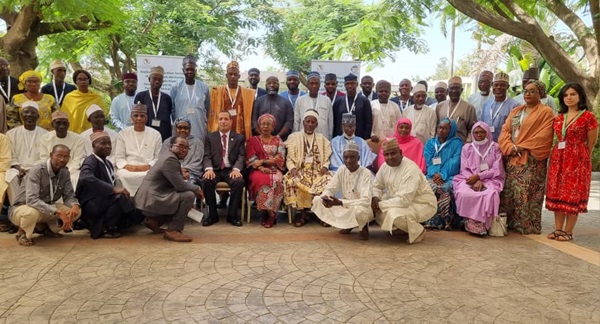
In a groundbreaking initiative that aims to transform the pastoral livestock marketing landscape, the African Pastoral Market Development Platform (APMDP), hosted by the African Union’s Inter-African Bureau for Animal Resources (AU-IBAR) in collaboration with the Federal Government of Nigeria, has launched the first Analytics and Implementers’ Engagement Workshop.
This programme seeks to deeply integrate women and youth into the pastoral livestock value chain.
This announcement follows the ongoing four-day Analytics and Implementers’ Engagement workshop held in Abuja, which highlights the critical importance of inclusive market development in pastoral communities. The initiative marks a significant step toward changing traditional livestock marketing approaches by empowering previously marginalised stakeholders – specifically women and youth.
The programme focuses on several key areas, including the integration of the private sector into the pastoral livestock chain and the creation of a favourable policy and regulatory environment that has historically limited women and youth participation. For example, financial inclusion programs aim to introduce specialised micro-credit schemes for women and youth entrepreneurs, complemented by comprehensive training in livestock marketing and agribusiness management.
Moreover, data ecosystems and platforms will be established to bridge knowledge gaps and provide essential market access tools, as well as data for process planning and decision-making in livestock marketing.
Technology transfer is also a primary component of this transformative approach. Mobile-based market information systems will be implemented to deliver real-time market intelligence and advisory services to young pastoral marketers.
Another crucial aspect of the initiative is private sector integration and capacity building. Innovative, evidence-based business models and best practices will be developed to connect experienced livestock traders with emerging entrepreneurs, creating opportunities for knowledge transfer, particularly in cooperative development.
Director of animal husbandry services at the Federal Ministry of Agriculture, Dr. Winnie Lai-Solarin emphasised the transformative potential of the initiative: “By focusing on women and youth, we’re not just developing a market; we’re building sustainable rural economic ecosystems that can drive national agricultural development.” This perspective underscores the initiative’s broader socio-economic objectives beyond mere market participation.
Women livestock traders, like Halima Osman from Kaduna State, have expressed optimism about the programme. “This initiative represents more than just an economic opportunity,” she noted. “It’s recognition of our potential to drive innovation in pastoral markets.” Such sentiments highlight the profound psychological and social impact of the initiative, which goes beyond economic empowerment to affirm the capabilities of women and youth.
The Federal Government of Nigeria has demonstrated a strong commitment to supporting the implementation of this initiative.
Looking ahead, the APMDP represents a holistic approach to market development, acknowledging that sustainable agricultural transformation requires inclusive strategies that empower historically marginalised groups. Future phases of the programme will focus on continuous monitoring and impact assessment, scaling successful interventions, and creating replicable models that can be adapted across other African pastoral regions.
As this ambitious programme unfolds, it stands as a testament to the potential of collaborative, inclusive approaches to agricultural development. By recognising and nurturing the talents of women and youth, the initiative promises to revolutionise pastoral livestock marketing and reshape economic opportunities in rural Nigerian communities.

